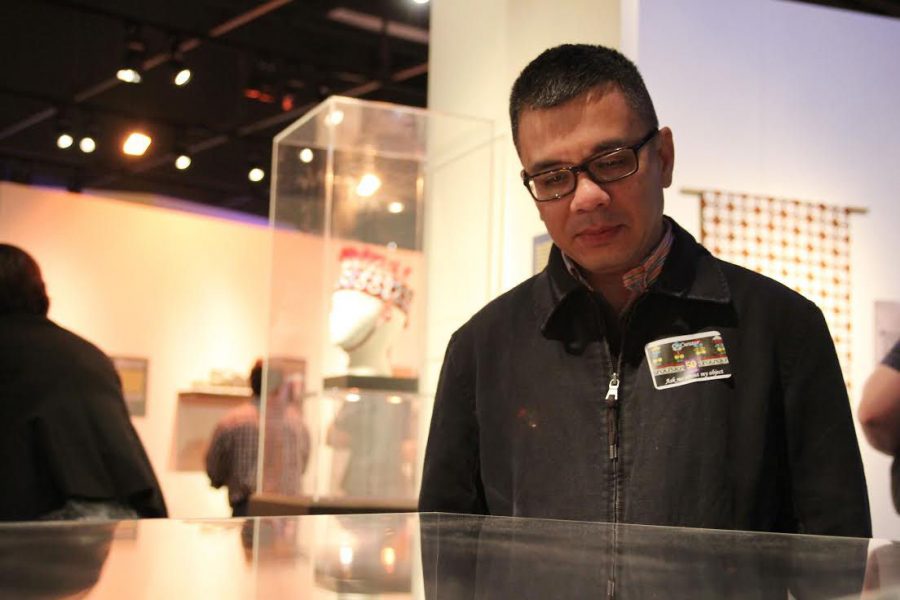DeKalb history honored in exhibit
Hao Phan, University Libraries’ Southeast Asia curator, views an exhibit on an early 20th century Potlatch Spoon during Tuesday’s 50th anniversary of the NIU Anthropology Museum.
September 24, 2014
The Anthropology Museum hosted its 50th anniversary celebration Tuesday night with an exhibit named Curated by DeKalb.
Organized by decade, the Cole Hall exhibit reflects the history of the Anthropology Museum and features more than 200 ethnographic and archaeological objects chosen by members of the NIU-DeKalb community.
The exhibit includes a picture of each curator next to the object he or she chose as well as an explanation of why the curator chose the object. Among the featured curators were NIU President Doug Baker, Victor E. Huskie and Brian Reis, executive director of the Ellwood House Museum. Baker curated a black and red Native American mask, while Victor E. Huskie chose a ceramic reproduction dog vessel. The exhibit will be open until May.
Anthropology Museum Director Jennifer Kirker-Priest said she was happy with the turnout.
“We wanted to connect with the community and reinforce the role we could play in their lives,” Kirker-Priest said. “This shows how you don’t have to be an expert to find meaning” in historical objects.
Sophomore kinesiology major Becca Michelau said she went to the opening because Alpha Phi Omega, the service fraternity she is pledging for, requested pledges pick their favorite piece in the museum and take a selfie with it. Some of the 75 curators were also taking selfies in front of the object they submitted to the exhibit.
Ashley Van Us, textiles, apparel and merchandising major, said her favorite piece was the spinning wheel, a device for spinning thread or yarn.
“It is cool to see how everyone used [the spinning wheel] back then and how it has changed and evolved to what it is now,” Van Us said.



